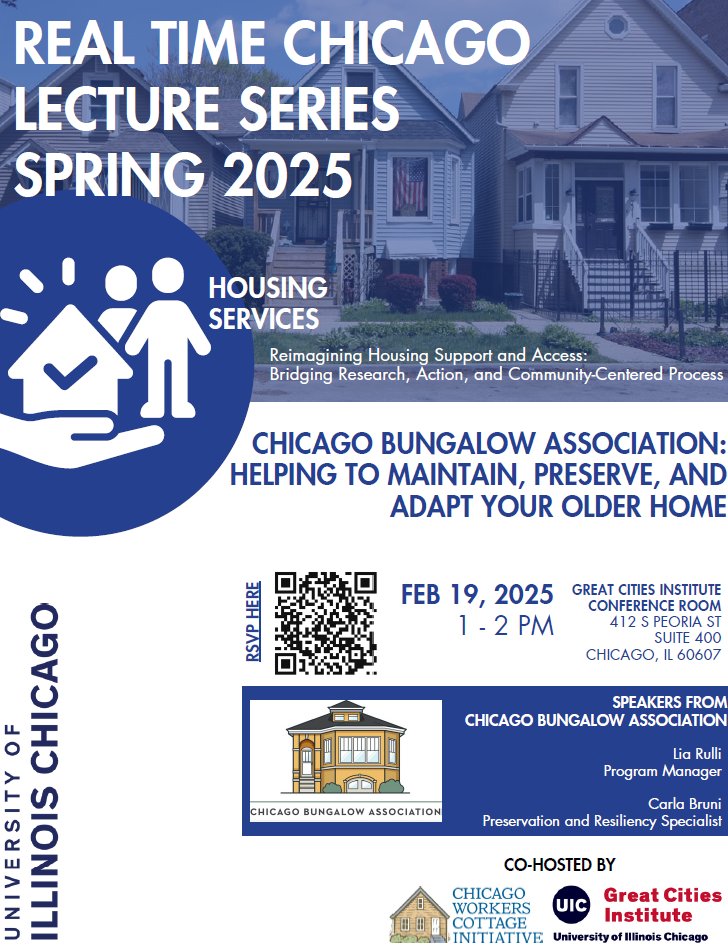Dr. Timothy Johnson joins the research team at the Great Cities Institute
For twenty-three years, Dr. Timothy Johnson served as the Director of the Survey Research Laboratory at the University of Illinois Chicago (1996-2019). We are so thrilled that Dr. Johnson is now part of the team at the Great Cities Institute as a Senior Fellow and Research Specialist. Tim’s presence greatly enhances our expertise in developing questionnaires and collecting and analyzing survey data. Dr. Johnson is known worldwide among survey researchers and is recognized as one of the top survey researchers in the country.
In 2023, Tim received the Lifetime Achievement Award from the American Association for Public Opinion Research. “The award is given for an outstanding contribution to the field of public opinion research, including advances in theory, empirical research and methods; improvements in ethical standards; and promotion of understanding among the public, media and/or policymakers.” When presenting this very prestigious award, Tim’s contributions were noted:
Timothy P. Johnson’s leadership, scholarship, mentorship, and advocacy have enriched public opinion and survey research for over 35 years. His substantive and methodological contributions, his promotion and enhancement of research standards, and his advocacy for the importance of survey research, are each remarkable in their own right. Collectively, they have profoundly enhanced our entire field.
An enormously productive scholar, Tim’s impactful publications, including seven edited volumes and hundreds of refereed articles and book chapters, have advanced the science of survey measurement, improved representation of hard-to-count populations and produced innovations in cross-cultural methodology. Moreover, his ground-breaking applications of survey data to the study of health behavior, health care, substance abuse and mental health have reflected his commitment to using social science to promote the common good, particularly the health and well-being of underserved populations.
Tim’s generosity to both students and colleagues is legendary. Through decades of teaching and serving on over 80 dissertation committees at the University of Illinois at Chicago, he has developed the methodological finesse of a whole generation of researchers. He has also answered countless calls to serve on advisory, review, organizing and service committees across a wide range of academic and professional institutions.
Tim’s executive leadership service across our profession is almost unparalleled, including the presidencies of AAPOR, WAPOR, MAPOR, and AASRO. Across these organizations, he tirelessly protected our professional interests through advocacy for the importance of polls and surveys for informed decision-making and combating misinformation, as well as promoting establishment of and adherence to strong research standards. His leadership in AAPOR’s Transparency Initiative, including development of requirements, training, and outreach plans, and overall implementation of its vision, were essential to its success.
For all his extraordinary achievements and contributions, the American Association for Public Opinion Research is pleased to present the 2023 Award for Exceptionally Distinguished Achievement to Dr. Timothy P. Johnson.
Dr. Johnson first came to UIC in 1989 and in addition to his duties as Director of the Survey Research lab, taught courses in survey methodology and data analysis and has sat on countless professional boards and committees. Tim served as President (2017-18) of the American Association for Public Opinion Research; President (2016-18) of the Association of Academic Survey Research Organizations; President (2010-11) of the Midwest Association of Public Opinion Research; and President (2021-22) of the World Association for Public Opinion Research; and is a Fellow of the American Statistical Association.
Tim is also a Senior Fellow with NORC at the University of Chicago and Professor Emeritus at UIC. Tim’s research focuses on science policy, sources of survey error, and the social epidemiology of health behaviors.
Since he retired from UIC, Tim has also focused on the public perceptions of science in general and survey research in particular. Funding for his research has come from the National Institutes of Health, the National Science Foundation and the Robert Woods Johnson Foundation. The son of World War II veterans (his mother was a nurse), Tim was raised in western New York. He earned a Ph.D. in Sociology in 1988 from the University of Kentucky and coordinated research at the Survey Research Center there for six years.
Tim is one of our very favorite people and we are so excited that we will get to spend more time with him. Please join us in welcoming Tim Johnson to the Great Cities team.











